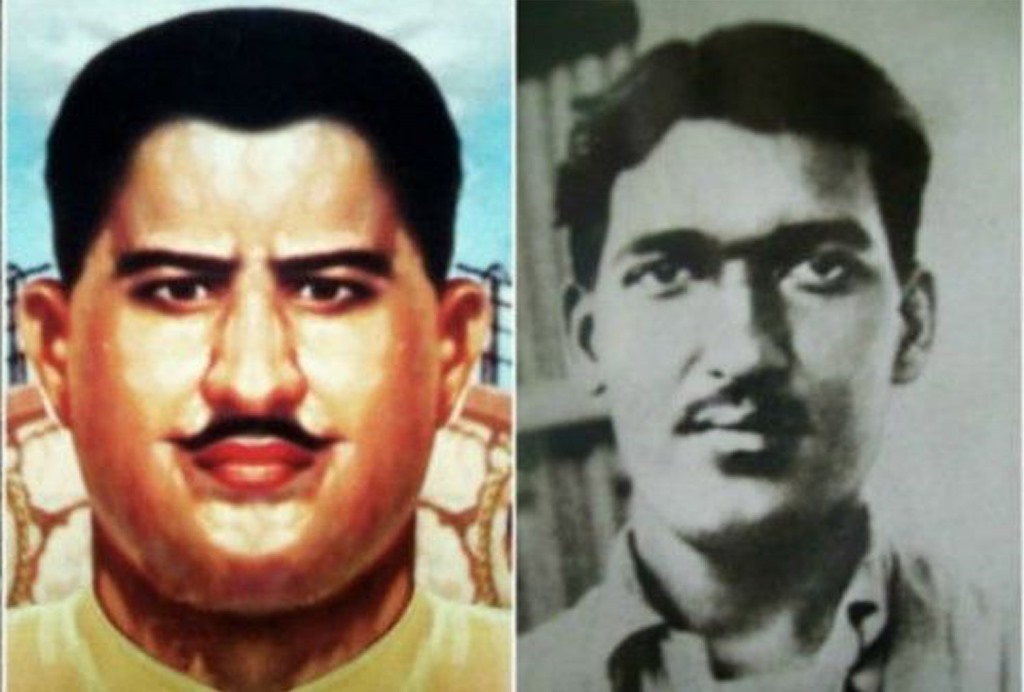This week India is observing the death anniversary of Kakori martyrs who made such a big impact on our freedom movement. The four Kakori martyrs include Ram Prasad Bismil, Ashfaqullah Khan, Rajendranath Lahiri and Roshan Singh.
Rajendranath Lahiri, a post-graduate history student with literary leanings,also an occasional contributor to journals, was hanged on 17 December 1927 at Gonda jail. Thakur Roshan Singh, who was also a farmer movement activist and had served a jail sentence earlier also in this context, was hanged at Allahabad on December 19/20 ( there are different dates in different accounts).
Ram Prasad Bismil, a great poet and writer as well leader of this group of revolutionaries, was hanged at Gorakhpur Jail on December 19/20. Ashfaqullah, a great poet, was hanged at Faizabad jail on December 19/20. Ashfaqullah was regarded by Ram Prasad Bismil as his younger brother and they both together have become great symbols of communal harmony.
All these jails and execution places are located in Uttar Pradesh ( then United Provinces). Hence their martyrdom day can also be observed as communal harmony day in Uttar Pradesh , where at present there is very great need for the message of communal harmony. Both the friends made a strong appeal for communal harmony in their last message to the nation. In fact Ram Prasad Bismil said in his last message with great emphasis that if you want to really pay homage to us then please establish Hindu-Muslim unity. He said that this is our last will, this should be our lasting memory. Ashfaqulah was no less emphatic in conveying this message.
The Kakori martyrs are also known for their strong commitment to the cause of workers and peasants. In his last message Bismil has called upon the youth to work among peasants and workers. Roshan Singh had been participating earlier in farmers’ movements. So the death anniversary of Kakori martyrs can also be observed in the context of the on-going farmers’ movement and expressing solidarity with it.
One of the most remembered days in India’s freedom movement is the martyrdom day of Shahid Bhagat Singh, Rajguru and Sukhdev observed on March 23 every year. The death anniversary of Kakori martyrs has a somewhat similar significance. Both the death anniversaries remember freedom fighters who were known for their wider commitment to equality and justice, and to the rights of workers and farmers. In both cases young men of great talent, promise and courage were given highly unjust death sentences and hence the demand that those who struggle for social, economic and political rights can never be given the death penalty. In both cases rights of political prisoners were highlighted and this is again an issue of very great relevance today.
We may conclude with a less known episode from the life of Ram Prasad Bismil. When his mother came to know ( or guessed) that he has joined the revolutionary movement, she made him promise that he will never take the life of another human being. Despite the path he had adopted, Ram always tried to keep this pledge. This aspect of his life made such an impact on me that I wrote a short story in Hindi based on this. Hence the key message of these revolutionary freedom fighters for youth is not of taking up the gun but of working for farmers and workers, working on durable basis to end exploitation and bring justice.
Bharat Dogra is a journalist. He is co-author of two recent books on India’s freedom movement—When the Two Streams Met and Azadi Ke Deewon Ki Daastaan.













